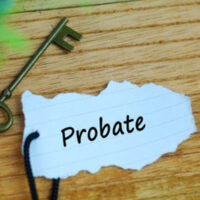Common Grounds for Probate Litigation and How to Avoid Them

If you are like many people, the last thing you want to happen after your passing is disagreements about your estate among your heirs, beneficiaries, surviving loved ones. Unfortunately, infighting and legal disputes are much more common than you might expect. The animosity often leads to lengthy, time-consuming – and costly – probate litigation that diminishes the value of your estate. Lawsuits are not what you envisioned and directly contradict your intentions when you die.
Generally speaking, the best way to avoid probate lawsuits is to develop a solid estate plan that is impervious to legal attacks. However, since you cannot always prevent them, you should at least be aware of what types of litigation Florida probate attorneys are frequently called upon to handle.
Issues with Will Execution: Litigation often arises from allegations that the legal formalities for executing a will were not met when the testator signed it. In Florida, the requirements include:
- The document must be in writing;
- It must be signed by the testator or someone else at his or hire direction; and,
- The signing process of the will must be witnessed by at least two individuals, who also sign in the presence of the testator and each other.
Misconduct in Signing a Will: In addition to the formalities of the will signing, disputes may stem from disagreement over whether the testator signed freely and without external pressure. At times, someone may assert that he or she did not have the required mental capacity to create an important document like a will. Under some circumstances, a lawsuit may be justified if the signing of the will was under duress or undue influence.
Disputes Over Personal Representative: There are often disagreements over who the probate court should appoint as personal representation in an intestate (an estate without a will) estate, since there is no will that names an executor. Florida law provides that the surviving spouse is given priority; however, the heirs may select by majority vote or an heir can apply.
Breach of Fiduciary Duty: Once the court appoints the executor of the will or a personal representative of an intestate estate, that person has strict, defined obligations as a fiduciary. Heirs and beneficiaries may accuse that individual of breach of fiduciary duty just because they are dissatisfied with the probate process. In other cases, there is credible justification to pursue the personal representative for misconduct.
Get Legal Help from a Pasco County, FL Probate and Estate Planning Lawyer
By working with a skilled estate planning attorney, you do have the power to reduce the potential for these or other types of probate litigation. Still, you should be aware that disputes can erupt after your passing, which may require the services of a Dade City probate lawyer. Our team at The Law Office of Laurie R. Chane handles both estate planning and estate administration cases, so we are prepared to advise you. Please call our office at 352-567-0055 or visit us online to set up a consultation.
